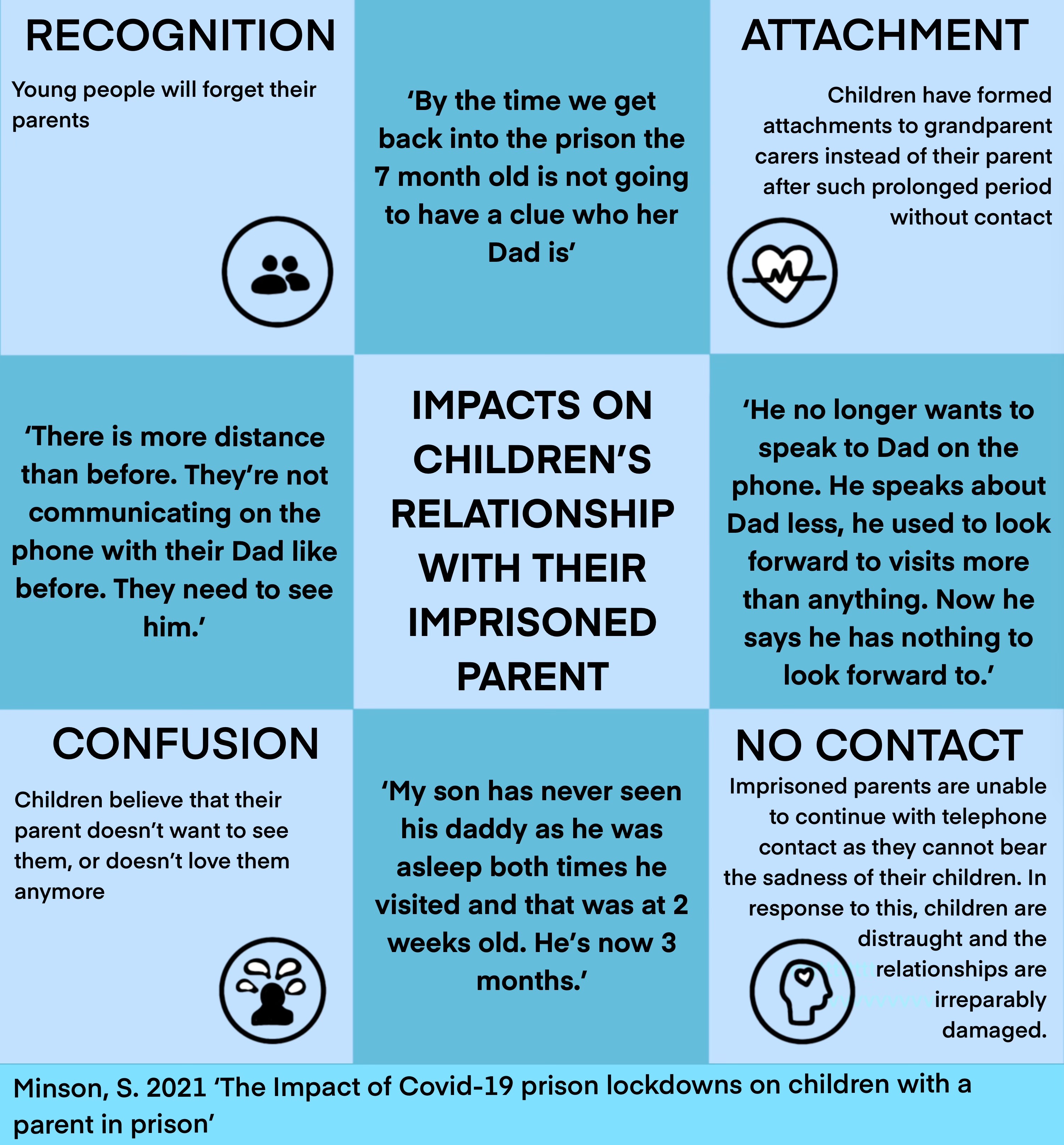New report highlights the issues faced by children with a parent in prison during the pandemic
Associated people
In early March 2020 as the pandemic hit the country, face to face visits were stopped in prisons and, despite a few reprieves during the summer months, have remained so ever since. This has had a devastating impact on children with parents in prison during this time, many of whom haven’t see their imprisoned parent for 12 months.

It is estimated that more than 300,000 children in England and Wales have a parent in prison each year and this study explored the experiences of more than 70 children whose parents were in prison across the UK during the first lockdown in 2020.
The study found that children experienced confusing and complex emotions when face to face visits were stopped. Many children thought that their parent didn’t want to see them anymore, or maybe their parent no longer loved them. Children blamed themselves for this.
Many prisons did not have video call facilities in operation until early 2021 however video-calls and phone calls between children and parents were found to be inadequate in reinforcing the bond between parent and child. Physical contact between parent and child is of great importance to the development of relationships and both younger and older children missed hugs, touch, and seeing their parent.
In many establishments, prisoners were confined to their cells for up to 23 hours each day and they reported having to choose to use the time out of their cells to, for example, either have a shower or phone their child. Added to that the cost of calls from prison remains high and some families still found it hard to pay for sufficient phone time. Prior to the pandemic many prisoners were allowed out to work and had access to a mobile phone, but that ended with the lockdown.
They think he doesn’t care about them because he can only ring for five minutes per day.
The study found that almost all participants reported that the children were experiencing sadness and grief related to the loss of contact with their parent. Children were suffering from depression and anxiety and there were incidences of self harm and the onset of eating disorders. Almost all participants were concerned about the difficulties families would face when the parent was released, as particularly for young children, the parent was a virtual stranger.
The report goes on to make recommendations for change including In cell telephony or secured mobile phones being made available to every prisoner to enable frequent phone contact and that the Government should provide a clear and publicly communicated roadmap for the re-establishment of prison visits, and the lifting of restrictions within prisons, at the same time as announcements are made about the rest of the community. There are also recommendations that more use should be made of the early release scheme to allow parents to serve the end of their sentences at home, and for improvements to be made to the video call facilities within prisons.


